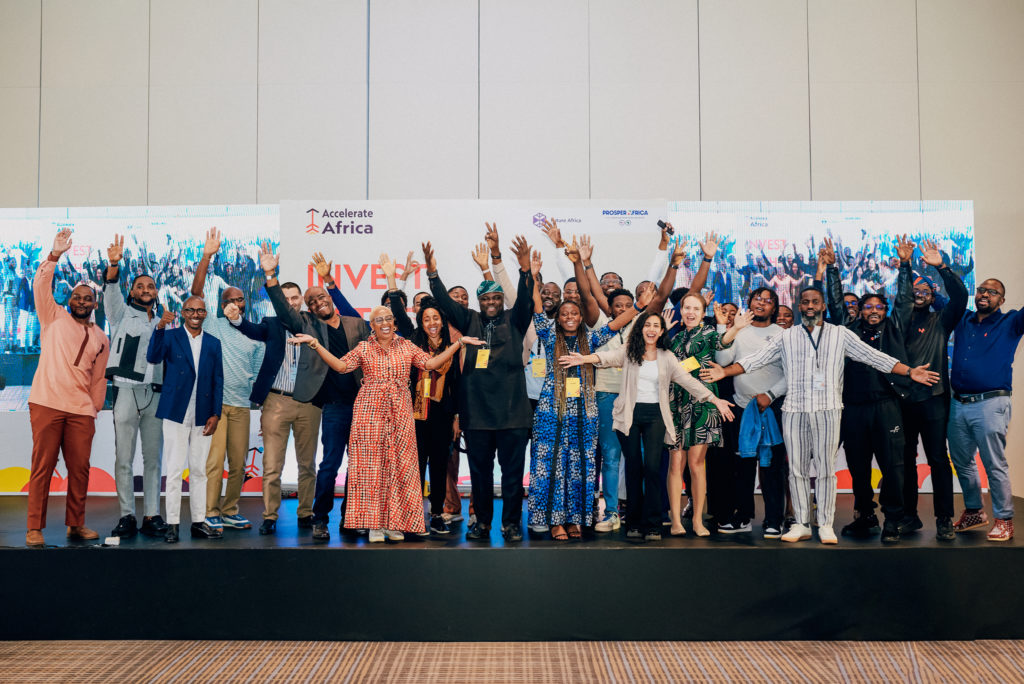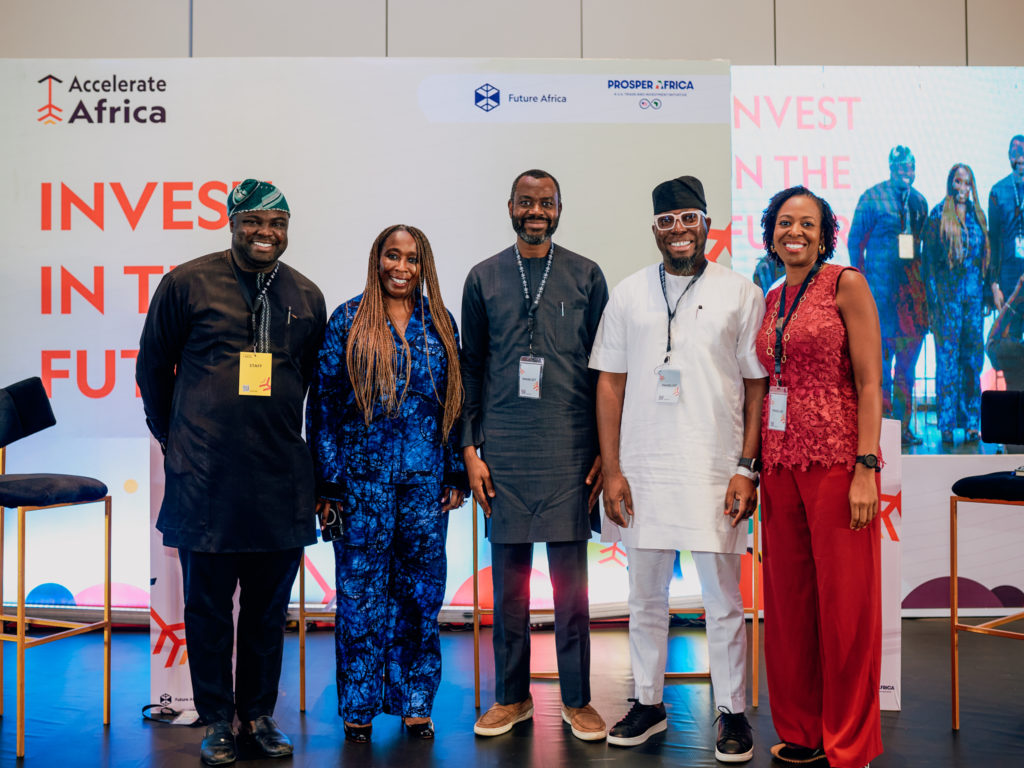At the demo day of the first cohort of Accelerate Africa, the accelerator aiming to be the continent’s version of Y Combinator, several people in the audience laughed when Iyin Aboyeji, a cofounder of the accelerator and two-time co-founder of startups valued over $1 billion, quipped, “Unicorn is a bad word.”
His assertion is an honest reflection of how pursuing higher valuations can cause startups to burn out after incinerating millions of dollars. For a heady two years, founders were trying to match the optimism of cash-rich VCs buoyed by a zero-interest rate policy (ZIRP) and may have lacked deep market understanding. There has since been a return to earth.
 The Accelerate Africa team and the ten founders in the first cohort.
The Accelerate Africa team and the ten founders in the first cohort.
Biola Alabi, general partner at Acasia Ventures who shared the panel with Aboyeji, noted that startups across African markets are now cutting their valuations to size. Investors are coming to deal tables with more scrutiny—evaluating the business’s unit economics and revenue generation before making investment decisions.
This paradigm shift from building the next billion-dollar valued startup to creating multi-billion dollar revenue-generating businesses is the foundation of Aboyeji’s Accelerate Africa—to put participating startups on the path to $1 million in revenue.
This shift was felt in the presentations by the 10 founders who presented on demo day. They tried to define their ambition by why their technology was important, how they planned to acquire customers, and how much they were asking customers to pay.
 Iyin Aboyeji, Yvonne Ike; the head of Sub-Saharan Africa at Bank of America, Abubakar Suleiman; the CEO of Sterling Bank, Yomi Awobokun; the managing partner at CE-IV, and Biola Alabi; general partner at Acasia Ventures.
Iyin Aboyeji, Yvonne Ike; the head of Sub-Saharan Africa at Bank of America, Abubakar Suleiman; the CEO of Sterling Bank, Yomi Awobokun; the managing partner at CE-IV, and Biola Alabi; general partner at Acasia Ventures.
Remi Dada whose startup, Campus HQ, claims to be the AirBnB for workspaces, refrained from cliches about the millions of Africans in the addressable market and instead focused on how much revenue the business made during the 4-week programme.
Amanda Etuk, the CEO of Messenger, said her startup which was gunning to be the Moove of delivery riders, secured a partnership from Bolt to offer vehicle financing to its Nigerian delivery riders.
The Eswatini founder of JuiceMe, Sandile Dlamini, shared news of securing a liquidity partner that will scale the operations of its Whatsapp-based app that gives employees access to the wages they have earned before payday.
After having its AI bot say two proverbs in Swahili, Yinka Iyinolakan, the founder of CDail, an AI startup also shared that his company’s revenue model includes licensing its AI model which speaks and understands over 1,000 African languages to much bigger companies.
The other six startups in the accelerator are; FlickWheel; a Nigerian auto-tech startup that offers on-demand vehicle repair, Afriskaut; a Nigerian AI and data startup that enables the discovery of sports talents across Africa, Agrails; a cleantech startup that provides AI-powered data systems that provide real-time Africa’s climate risk and opportunities, Checkups; a Kenyan health tech startup that offers affordable and accessible healthcare to the uninsured and underserved via micropayments, PipeOps; a Nigerian startup that allows companies without cloud expertise to automatically set up, deploy and manage their apps on the cloud, Settle; an Egyptian fintech that automates the process of B2B payments.
Commending this more self-aware stance of founders, Abubakar Suleiman, the CEO of Sterling Bank, who shared the panel with Aboyeji and Alabi promised to increase access to liquidity for startups who currently seemed to be excluded from institutional lending despite the rise in debt funding.
“Banking is designed to give you cash flow today, to accelerate predictable cash flow tomorrow,” Suleiman said, trying to explain why many startups that have little to no revenue have limited access to bank loans. ”Your valuation is not a source of payment for a bank,” he said matter-of-factly as he turned his gaze from Iyin Aboyeji, who moderated the panel, to the tens of founders, investors, and operators in attendance.
“I would also like to partner with Accelerate Africa or anyone to organise learning sessions for founders,” Suleiman added during the panel discussion he had with three local investors. “This is to help them understand the difference between trying to attract VCs and taking a loan from a bank.”
In addition, he offered to provide liquidity for a private capital market, if anyone were to build one. Growth-stage investments and IPOs becoming less feasible avenues of financing and shareholder liquidity. Yvonne Ike, a fellow panel speaker and the head of Sub-Saharan Africa at Bank of America, shared that a private capital market like the London private market exchange would be a better option. Suleiman announced on the panel that he is open to supporting both the building and providing upfront liquidity for such a platform.
Accelerate Africa seems to be off to a good start, as the participating founders say that it lived up to its promises: to radically improve their storytelling, financial models, and product thinking, and connect them to corporates and investors.
The accelerator is not obligated to make equity investments in the startups, however, during the event, investors were urged to indicate their interest in any of the startups. Selected startups can expect investments from angel investors and venture capitalists. It is unclear which startups Future Africa will invest in, but a spokesperson for the company says it will have decided by the end of June.
Get the best African tech newsletters in your inbox
>>> Read full article>>>
Copyright for syndicated content belongs to the linked Source : TechCabal – https://techcabal.com/2024/06/04/unicorn-iyin-aboyejis-accelerate-africa-first-cohort/










